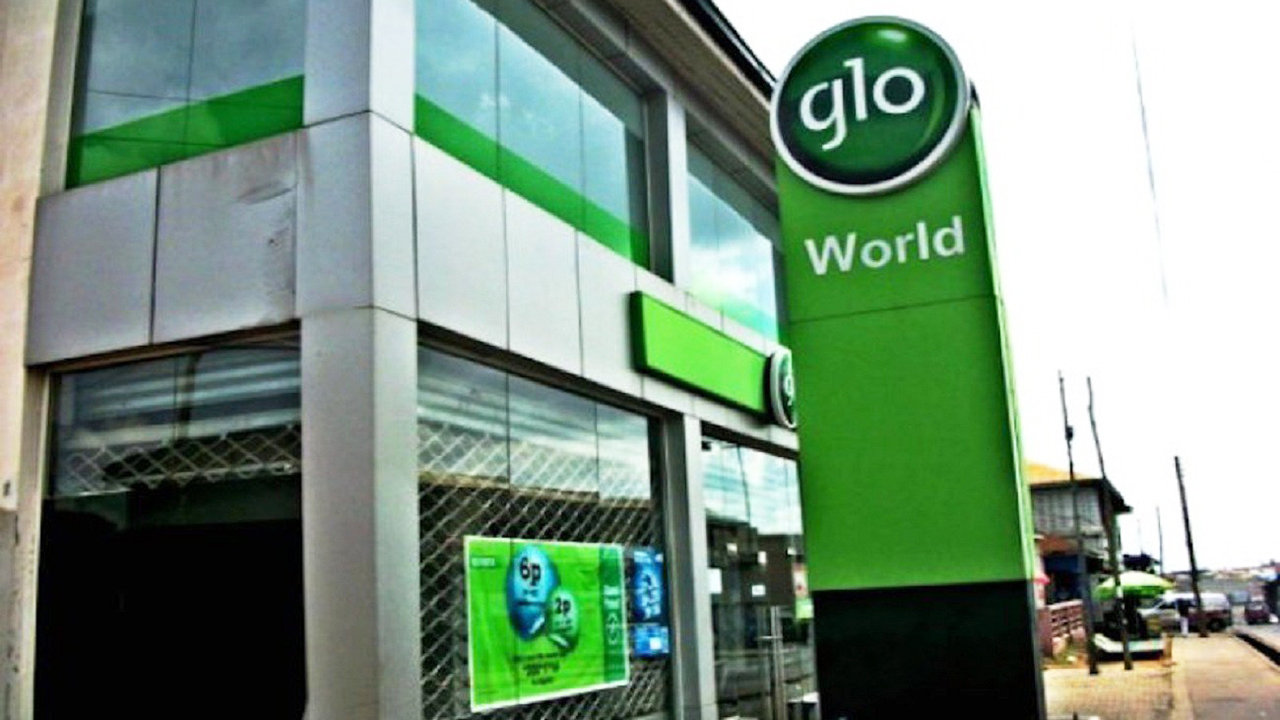Business
Nestlé’s GOLDEN MORN: Building the Next Generation of Agripreneurs

Over the years, GOLDEN MORN has worked with local farmers who supply the homegrown maize and soya beans used in the production of the nutritious family cereal. With 100% of the grains sourced locally, GOLDEN MORN is not only sustaining Nestle’s local sourcing ambition, but is also impacting the local economy positively by providing a sustainable means of livelihood for the farmers and other players across the value chain.Raising the next generation of farmers and “agripreneurs” is critical, not just for ensuring the availability of grains for meeting GOLDEN MORN’s needs, but also for building thriving communities and sustained economic advancement.
Therefore, in October 2021, the brand launched GOLDEN MORN Agripreneurship Series in collaboration with The Enterprise Development Centre of the Pan Atlantic University to promote youth participation in the agricultural sector through training and provision of grants for the most promising agriculture business proposals by the beneficiaries. The beneficiaries are exposed to different aspects of the agricultural value chain and are provided with seedlings and mentorship to help them succeed as farmers post training.
Victoria Uwadoka, Nestlé Nigeria’s Corporate Communications and Public Affairs Manager said, “As a force for good, our brands with purpose help to drive societal progress by Creating Shared Value across their value chain. This way, Nestlé is driving impact at scale across critical socio-economic sectors including agriculture to build a sustainable mutually beneficial ecosystem.”“The GOLDEN MORN Agripreneurship Series seeks to train and provide support to young entrepreneurs in the agricultural sector in order to promote sustainable food systems in Nigeria. Over the years, the brand has consistently supported the growth of a thriving ecosystem of farmers, and is now attracting and equipping young agripreneurs, who will ensure continuity from the current generation.Equipping these future farmers will ensure continuous supply of high-qualitygrains to Nestlé while contributing towards ensuring nutrition and food security to cater to our rapidly growing population estimated to reach 400 million by 2050.”
Speaking at the opening session of the fourth season, Ifeanyichukwu Orabuche,Category & Marketing Manager Dairy, Nestlé Nigeria PLC, said, “As a brand, we are excited to further extend investment towards creating value for young agripreneurs aged 18 to 35 years, who are already participating in or are interested in the grains value chain. Through the series, we aim to positively impact on the local economy by growing agribusinesses to create job opportunities for young Nigerians. Beyond the training and mentoring opportunity, the series provides,beneficiaries who excel during the training also stand a chance to win seed funding for their businesses”.
The two-day virtual training which covers various aspects of the agriculture value chain including sales and marketing, is facilitated by credible and experienced professionals in the agriculture sector.
Obianuju Okafor, Project & Finance Manager of the Enterprise Development Center, Pan Atlantic University said, “We are delighted that our partnership with GOLDEN MORN is now in its fourth season. Through this partnership, we are building a community of young agripreneurs who can go on to foster innovative ideas and trends in the agricultural sector to build sustainable food systems now and in the future”.
Since the commencement of the GOLDEN MORN Agripreneurship webinars, over200 youths have benefitted from the opportunity provided by the brand with seven of them receiving a total of 3.5 Million Naira to scale their businesses.Nestlé GOLDEN MORN is an iconic brand from the stable of Nestlé, the good food, good life company, committed to unlocking the power of food to enhance quality of life for everyone today and for generations to come.
Developed in Nigeria in 1986, the homegrown brand has evolved into an iconic brand, loved and trusted by Nigerian families.
Business
FirstBank Partners Verve to Issue Free Debit Cards in Nationwide Promo

First Bank of Nigeria Limited (FirstBank), Nigeria’s premier and leading financial inclusion services provider, has announced the launch of the Verve Flash Promo, a special initiative rewarding customers with free Verve cards.
The campaign, which commenced on 6 October 2025, and will run until 30 January 2026, is exclusively targeted at FirstBank customers whose ATM cards have expired.
The free cards will be issued daily to 131 customers on a first-come, first-served basis across the Bank’s branches, nationwide. FirstBank’s unwavering commitment to convenience, accessibility, and customer satisfaction.
Speaking on the rewards to FirstBank customers, Chuma Ezirim, the Group Executive, e-Business and Retail Products at FirstBank, said: “The Verve Flash Promo is not just about rewarding customers with free verve debit cards; it is about celebrating our legacy of 131 years of trust, resilience, and innovation in the Nigerian financial services industry. At FirstBank, we remain committed to providing customer-centric solutions that enable secure, seamless, and convenient payment experiences. Partnering with Verve International on these initiatives, including the Verve Good Life promo, underscores our shared vision of deepening financial inclusion while rewarding our loyal customers for their continuous patronage.”
Also commenting, Vincent Ogbunude, Managing Director, Verve International, noted:
“Through strategic collaborations like this with FirstBank, we continue to demonstrate Verve’s commitment to enhancing access to seamless payment solutions for every Nigerian. The Verve Flash Promo not only rewards loyal customers but also reinforces our vision of making everyday transactions more rewarding, secure, and convenient. As we extend the Good Life Promo, we remain steadfast in our goal of deepening financial inclusion while delivering real value to Verve cardholders across the country.”
Meanwhile, the ongoing Verve Good Life promo, designed to reward Verve debit card holders for using their cards at specific merchant points, has been extended to 30 November 2025.
During the period, Verve Card holders enjoy 10% cashback at The Place Restaurant, Quickteller, Buypower, Filmhouse, AlliExpress, Addide Supermarkets, and Chowdeck app every Thursday to Sunday.
Verve cardholders can now enjoy a 10% cashback on the Google Play Store any day of the week throughout the Good Life Promo, which runs until 30 November 2025. Moreso, every transaction made with a Verve card whether on ATMs, POS terminals, or online platforms automatically earns customers a chance to win up to ₦1,000,000.
Business
Glo Enhances Data Bundles, Offers More Data at No Extra Cost

Nigeria’s leading telecommunications company, Globacom, has announced enhancement of its data bundles to give subscribers more data volume at the same affordable prices.
The upgrade reinforces the company’s commitment to providing superior value and exceptional customer satisfaction.
The upgraded Glo Data Bundles are enhanced versions of the existing daily, weekly, and monthly plans, giving subscribers more data at no additional cost.
These improvements offer users greater freedom and convenience to enjoy their favourite online activities from streaming and gaming to social media, video calls, and more.
For daily users, the ₦100 plan has been upgraded from 105MB to 125MB, giving light internet users even more data to browse, chat, and stream short videos conveniently.
The weekly bundles have also received notable boosts, such as the ₦1,500 plan, which now offers 6GB instead of 5.9GB, enabling subscribers to stay connected longer.
Heavy data consumers will also enjoy remarkable value on the monthly plans. The ₦2,000 bundle now gives 6.25GB, while the ₦10,000 package has been enhanced from 38GB to 42GB, allowing users to do more from video streaming and large file downloads to remote work and virtual meetings.
Students are not left out, as the Campus Booster Plan has been upgraded with higher data allowances, ensuring seamless access to academic resources and social networks while on campus.
Globacom noted that the revised bundles are available to all Glo customers prepaid, postpaid, and hybrid and can be activated by dialing *312#, using the Glo Café app (available on Android and iOS), or visiting hsi.glo.com.
The company added that subscribers can use, share, or gift data through *312# or the Glo Café app. Customers will also continue to receive data usage alerts at 75% and 100% consumption levels to help monitor usage effectively.
Unused data is automatically rolled over upon renewal before expiry or when a new plan is purchased within the grace period (ranging from one to seven days, depending on the plan).
Globacom reaffirmed its commitment to empowering Nigerians with reliable and affordable data access, urging customers to take advantage of the revised data bundles that combine affordability, quality, and more browsing power ensuring every Glo subscriber enjoys more data without paying more.
Business
Maiden Flight to Heathrow Airport: Fidelity Bank Hails Air Peace

Fidelity Bank Plc has congratulated Air Peace on the successful launch of its maiden direct flight from Lagos to London Heathrow, describing the milestone as a significant achievement for Nigeria’s aviation sector and a testament to the power of indigenous partnerships.
The commendation was delivered by Dr. Nneka Onyeali-Ikpe, managing director of Fidelity Bank, during a special event held in Lagos to celebrate the airline’s expansion into the European market.
“This is not just a win for Air Peace, but a win for Nigeria,” Onyeali-Ikpe said. “It reflects the strength of home-grown businesses and the impact of strategic financial support in enabling national champions to thrive on the global stage.”
Nigeria CommunicationsWeek reports that Fidelity Bank has played a pivotal role in Air Peace’s growth, providing early financial backing and advisory services that helped the airline become the largest carrier in West Africa. The bank continues to support Air Peace through payment processing and other financial services
The launch of the London route marks a new chapter for Air Peace, which now joins a select group of African airlines operating direct flights to Heathrow.
The development is expected to boost tourism, trade, and connectivity between Nigeria and the United Kingdom.
Speaking at the event, Allen Onyema, Chairman of Air Peace, expressed gratitude to Fidelity Bank for its unwavering support and reaffirmed the airline’s commitment to excellence and service.
“This partnership has been instrumental in our journey,” Onyema said. “We are proud to fly the Nigerian flag across international skies.”
Industry stakeholders present at the event praised the collaboration between the two companies as a model for sustainable business growth and national development.






